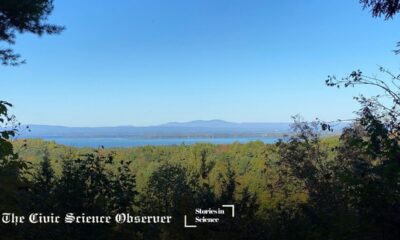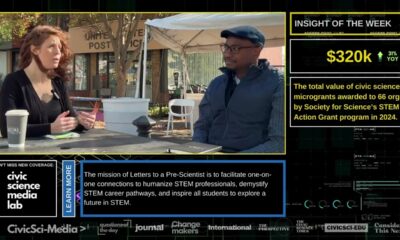Stories in Science Special Series
Tanqueray and Rocks

– by Silas Stafford –
[dropcap]Y[/dropcap]ou can’t do geology without a nice gin and tonic. It’s gotta be Tanqueray, none of this Gordon’s crap. After a few you’ll start really appreciating the change in perspective”. Professor Shore’s voice boomed, brimming with gravid enthusiasm and filling the lecture hall as he dispensed advice for the coming field trip. Professor Shore, or “the Dick” as we affectionately called him, was pulling out all the stops. It was his final semester teaching, his retirement Corvette was purring to him from the parking lot, and he didn’t give a damn about whatever decorum a junior college geology professor is meant to have.
Geology at Santa Rosa Junior College was not exactly a magnet of ambition, but Professor Shore’s students were drawn to his swashbuckling enthusiasm for rocks. Geologists as a people have a strong streak of “all we are is dust in the wind” existential angst. If you imagine the earth congealed out of the Late Heavy Bombardment only a day ago, and the entire history of the earth is compressed across those 24 hours, the entirety of recorded human history represents merely a tenth of a second in that day. In the vast dimension of geologic time, the mighty Andes are young, the crustal rocks in the depths of the ocean ephemeral, and the births of Donald Trump and Jesus Christ were temporally coincident. Under the weight of such perspective (and a few gin and tonics under the stars), it’s hard to worry very much about whatever it is that community college students worry about. Professor Shore fully embraced the irony of his discipline with a winking nihilistic glee, and perfected this affect to an art. His lectures couldn’t rightly be called anything but performances; irreverent, coarse, but most of all enrapturing. His classes were packed, his students engaged and inspired.

Silas Stafford
Upon writing this piece, I learned that Professor Shore passed away several years ago, and I feel a substantial loss. He never knew who I was; an awkward high-schooler moonlighting as a junior college student, too terrified to ask a question or make a peep. But Professor Shore ignited in me a passion for geology, and I went on to pursue a career in geology. So much of who I have become, how I think, what I am, stems from the awesome beauty and mystery that accompany the study of the earth, and accordingly from Professor Shore.
Though it might sound silly, I truly believe that my training as a geologist informed my approach as an athlete.
After I finished grad school at Cambridge, I had the great fortune of competing in the Olympics in rowing. It was the culmination of a long road. When we won Olympic trials, I didn’t feel a dramatic struggle, I felt relief; our performance was largely the same as training every other day leading up to that moment, and our preparations proved enough to ensure victory. As sports fans, we admire the brilliant performance of a victory, a record, an accomplishment and imagine the moment of that performance as a dramatic and extraordinary struggle. However, the primary struggle of the athlete is not in the moment of triumph, but rather in the road to getting there. An athlete does not achieve the highest levels with merely a spectacular effort, a genetic gift, or a moment of brilliance. It is long tedious toil, day after day for years and years, every day spent stretching for a single millimeter of improvement, which takes an athlete to the highest level.
Though it might sound silly, I truly believe that my training as a geologist informed my approach as an athlete. Geology doesn’t only make one feel small, it attests to the power of incremental change. Much as a river grinds sand-grain by sand-grain, deeper and deeper over millennia to carve the grandest of canyons, so an athlete must strive for a modicum of improvement every single day. I believe true greatness comes from chipping away and chipping away, every day a little stronger, a little higher, a little deeper, not from the flash in the pan of revolution or brilliance. As Professor Shore taught me, a relentless, systematic, incremental approach will always triumph in the long term. And after years and years, you will find that the centimeter by centimeter collision of tectonic plates will have put you on top of the world.
More about Silas Stafford: USRowing
Featured Image is by Norm Bosworth on Pixabay | CC0 Public Domain
The CS Media Lab is a Boston-anchored civic science news collective with local, national and global coverage on TV, digital print, and radio through CivicSciTV, CivicSciTimes, and CivicSciRadio. Programs include Questions of the Day, Changemakers, QuickTake, Consider This Next, Stories in Science, Sai Resident Collective and more.

-
Audio Studio1 month ago
“Reading it opened up a whole new world.” Kim Steele on building her company ‘Documentaries Don’t Work’
-
 Civic Science Observer1 week ago
Civic Science Observer1 week ago‘Science policy’ Google searches spiked in 2025. What does that mean?
-
Civic Science Observer1 month ago
Our developing civic science photojournalism experiment: Photos from 2025
-
Civic Science Observer1 month ago
Together again: Day 1 of the 2025 ASTC conference in black and white
Contact
Menu
Designed with WordPress
























